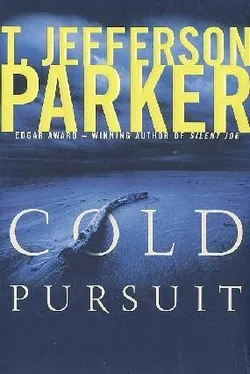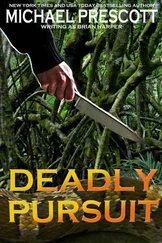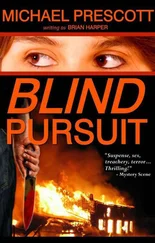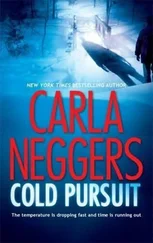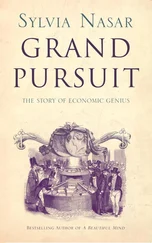"Pete's Tunaboat Foundation without Pete."
"Right- the guys he was lying to. Another pint, son?"
McMichael signaled to Hugh Spellacy, one of the two brothers who owned the pub. They'd inherited it in 1965 from their father, who had purchased it in 1951 from Franklin McMichael, who had inherited it from his father in 1939, who had taken it over for his father in 1901, fourteen years after it was opened here on Front Street by Donovan McMichael, who arrived in San Diego from County Cork via Ellis Island and wagon train. Just last year the Spellacy brothers had made news by refusing to let the city register the pub as an official place of historical interest. This because the city had declined their applications for four consecutive years in the early 1980s, when seismic retrofits and code violations were killing them. Historical status would have exempted them from some of it. So they'd paid full retail for the repairs, and just barely survived. Typically Irish, McMichael thought, to carry a grudge of pride so far past its usefulness. The Spellacys had inlaid an old-fashioned bronze plaque near the old cornerstone, designating the pub as a place of "Historical Disinterest" although "still the auldest and finest Irish Public House in the great State of California."
"How's Johnny?"
"He's perfect, Dad."
"You must miss watching him grow. That was one thing I always held on to. Your mother and I never split."
"You were lucky. Mom put up with a lot more hell than Stephanie ever did."
"Stephanie was in it for different things, in my opinion."
"You've said that a million times."
"And she got them. But it's too bad for Johnny and you."
"Anyway, he's perfect. Will Keller be here to walk you home later?"
"Will he be here? He's been here to walk me home for fifty years!"
Keller had been at Gabriel's side since 1953, when they were both thirteen, and Victor Braga was beaten more than half to death behind the Waterfront bar. Logic and uncertain eyewitnesses had brought the police to Gabriel, who had denied knowing anything about it. But Gabe bragged to his Logan Heights Irish friends, a bit too loudly, that Victor had just gotten what Pete deserved. So when the Portuguese boys came after him, they had to deal with Keller, who had knocked out grown men since he was twelve years old.
"When they jumped me down on Ash back in 'fifty-eight, it was Tim Keller who saved my life. Same in 'sixty and 'sixty-four."
Fists and knives, thought McMichael, thirty stitches for his father and a broken jaw for Keller in the 'fifty-eight rumble. "I know, Dad."
Keller and Gabriel had been in more than enough knife and fistfights to land them both in jail, but the Portuguese didn't talk to the cops and the Irish didn't talk to the cops and they both scattered like fleas when the prowl cars came howling to a stop.
McMichael thought how different it had been then. Quaint wasn't quite the word for it. Maybe proportional . Now, if young men had a dispute like that it was cars and guns and people died. His father hadn't been attacked in almost thirty years, but Gabe and Keller stuck together anyway- two near-geezers shuffling the downtown streets between the bars and the trolley station and their flophouse hotel rooms downtown.
McMichael hung with his father until Tim Keller came through the door, thin and slope-shouldered as ever, his pale blue eyes a mystery of soul and mischief.
"What's the word, Tommy?"
"You old homies stay out of trouble."
"Trouble keeps a man young- just look at me. Besides, it's all I have left to do. Stay for a pint, Tommy."
"There's work to do."
"Imagine, your son a cop," said Keller, sizing up McMichael, then Gabriel. "After all the trouble you've made in your life."
"That's exactly why he is a cop, Tim. Hoping to balance things out."
"The Lord never gets tired of surprises." Keller clamped a hand around McMichael's arm. "And here's some free advice. Pete Braga was mixed up with this new airport thing. There's millions to be made on it, and Pete was after more than his share. See, the airport buys all their cars and trucks from Pete Braga Ford. Been that way for years. What I'm thinking is, Pete might have cut himself a better deal with the new airport. I'd look into that angle, if I were you."
"I'll do that. And what were you up to last night, Tim?"
"Oh, I was right here," he said, eyes cagey and gleeful. "Ask Hugh, he'll set you straight."
On the way out, McMichael leaned across the bar and asked Hugh Spellacy about Gabe and Tim and last night. Hugh set him straight.
For a moment McMichael stood there and watched his father reflected in the mirror behind the bar. Keller sat across from Gabriel in a tableau that McMichael had been seeing for three decades. What was the saying- God invented whiskey to keep the Irish from taking over the world? He shook his head, then caught his own face in the mirror, right below the "e" of Spellacy's. If he squinted a little, which he did, he could look a lot like Gabriel. Just turn his own wavy red-brown hair to gray, bend his smile lines down with age and booze, blanch his alert blue eyes with sun and disappointment, and you'd have Gabe. The McMichael ears, of course, were the kicker- thick-edged and lightly freckled- the ears of County Cork boys who came to America in steerage. His mother had shown him pictures. McMichael wore his hair a little long on the sides, as camouflage and distraction. Ditto Gabe. McMichael could always spot his ancestors in the old photographs: the ones with the tough eyes, the ready smiles, and ears like wing nuts.
***
He stood in the bright lights of the Von's Market on Rosecrans, comparing his Polaroid of Sally Rainwater's firewood bundle to the ones being offered for sale at $4.99 a throw. The labels were the same- Bear Creek Firewood- though the same supplier might sell bundles to any number of local markets.
He showed a copy of Rainwater's CDL to the manager, who didn't remember seeing her last night. But he was helpful enough to take McMichael to the checkers and box boys and box girls who had been on shift the night before. One box girl was somewhat certain she'd seen the woman between eight and ten P.M. One box boy was almost certain.
One of the checkers, a good-looking fiftyish man named Ricardo, was certain beyond reasonable doubt. "She bought two bundles of firewood and paid cash," he told McMichael. "She did not want any help out."
"Had you noticed her in here before last night?"
"Many times, over the last few months. A very easy face to remember."
***
He drove out Silver Strand Boulevard toward Imperial Beach. The strand was in fact silver tonight beneath the storm-scrubbed sky, stars close and the moon round and shiny as a hubcap.
McMichael looked out at the liquid mirror of ocean and thought of what he was about to do. A very easy face to remember . He listened inward for the soft footsteps of disaster but heard none.
Then he thought of Johnny and Stephanie cozy in their big house in La Jolla, enjoying the nonviolent prosperity of Dr. Clay Blass, oral surgeon. McMichael wondered if they were better off without him. What would he be doing right now, if they'd stayed together? Well, pretty much exactly this, he thought. Steffy would be home feeling alone and worried and be mostly through the first bottle of wine. Johnny would be done with his homework and dinner, maybe watching TV.
And McMichael would get home at nine or so- early, really, because when a case was hot you could work it for a couple of days straight and not come home at all. He'd share a bottle of wine with Steffy and they'd talk and he would try to put the work out of his mind.
But no matter what they talked about, their words would pool over a bedrock of resentment that had begun forming in Stephanie not long after they'd married. It got worse when he made Homicide. At home McMichael would see how genuinely disappointed Stephanie was to realize that his job sometimes took precedence over their marriage, how angry she was becoming, and he'd wonder if he'd somehow misrepresented himself and the work he did. The really surprising thing was that he was doing just fine. It became awkward, then irrelevant to tell her that he was happy here, in the hunt, with her and their son and the little house overlooking Interstate 5 and the harbor. He would sleep poorly if his team was up on the rotation, or sleep like the dead if it wasn't, until early morning when he'd get up and make breakfast and take Johnny to school, then go on to Fourteenth and Broadway and do it again. He liked the hectic velocity of it all, and the feeling of doing something that mattered. Liked making the city just a little better for his wife and son. Didn't mind being on call 24/7- weekends, holidays- every single day of the year except when they were on vacation. Liked putting the pieces together, making sense of hidden things, finally nailing someone to the wall. And the overtime pay really added up. McMichael knew all along he was living a cop's story. He'd known it going in, wanted it. But he'd thought he could rewrite it with a good middle and maybe even a happy ending. Seven years of it and Stephanie had fallen in love with the guy who pulled Johnny's tooth.
Читать дальше
